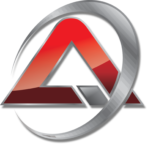Barco
Duluth, GA 30097
United States

New standards
In my previous post, I briefly referred to the evolution and creation of new standards, which will impact both laser-illuminated projection and the regular digital cinema market. Triggered by LIPA’s members and supported by research, the relevant standardization body (IEC), recently published two important new standards. Both apply to laser-illuminated projection, and reflect a more realistic approach on assessing LIPs, close to what the current market situation is for lamp-based applications.How does it work?
What are the benefits?
The new dual classification system is a great step forward for both the industry and end users. Typically, high-brightness devices will not be classified as Class 4 laser products but Class1RGX (x = 1, 2 or 3), significantly reducing restrictions on LIPs:
- No laser safety officer (LSO) requirements
- No laser light show requirements
- Only limited operator training
- Enclose the projected beam within the hazard distance or, ensure sufficient separation height (according the new IEC 62471-5:2015 a minimum separation height of 2m is required for areas where no unrestrained behavior is reasonably foreseeable as for cinema applications)
- No unnecessary additional engineering requirements as key switches, beam stops, emission indicator …
In addition, with the IEC 62471-5:2015 the level of unrestricted and allowed products has increased significantly, allowing bright, non-professional product on the market without restrictive safety limits. The figure below* shows the relative differences between the applicable safety limits as defined in different standards. It is clear that the product-specific image projector standard has higher allowed safety limits than the laser safety standard or the old lamp standard.
It should be noted that this change in product safety standards is not retroactive; all Barco non-cinema products currently on the market can be sold and installed worldwide.
What else?
Next to the new safety standards, other topics where discussed. In short:- LIPA is currently in discussion with the FDA and EU, Japan and Chinese regulatory bodies to harmonize the regulations with the new products safety standard. The progress and open issues where discussed during the meeting.
- The progress made in the LIPA IEC TC108 team will ensure image projectors can be validated according the next hazard based standard.
- Barco is active with several experts in the Speckle Metrology Working Group (SMWG). This task force has as its goal to create the industry approved method to measure speckle. Their draft results are expected by the end of the year or sooner.
* This graph only applies on 3-chip DLP projectors and indicates the different safety limits



